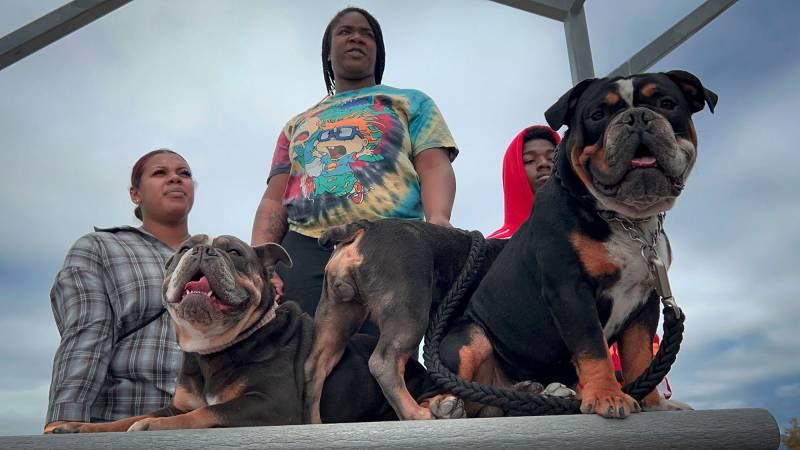In June, the U.S. Supreme Court ruled that cities can penalize people without homes for sleeping or camping in public spaces. Last week, California Governor Gavin Newsom ordered state agencies to begin enforcing the ruling.
Given that we share a community with nearly one-third of this country’s unsheltered people, Californians will see a major shift in how our streets look in the near future. And it won’t just impact the people who live on the boulevards and avenues — it’ll affect the pets who find shelter there, too.
“By uprooting those encampments, we’re going to see a lot more migratory homelessness, with pets involved,” says Marshall Williams, founder and CEO of Project Pet.

It’s estimated that 10% of people living without shelter in the United States are pet owners. Williams, who was once unhoused himself, says pet-person relationships provide benefits for both parties, even for those without homes.
“If someone is unhoused and taking care of their pet, that means they’re making sure the pet has exercise, food and water,” says Williams, who’s currently the owner of three dogs. “That means that the person is providing a level of care.” And by looking at a person’s pet, Williams says, you can get a glimpse into the state of a person’s mental health.



